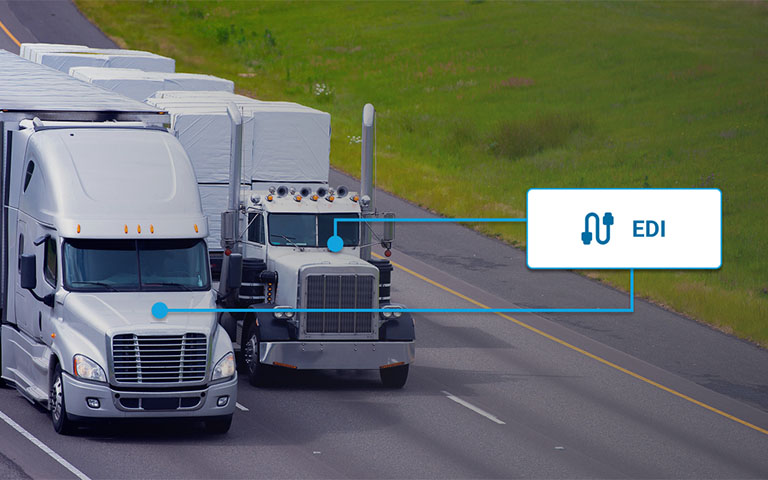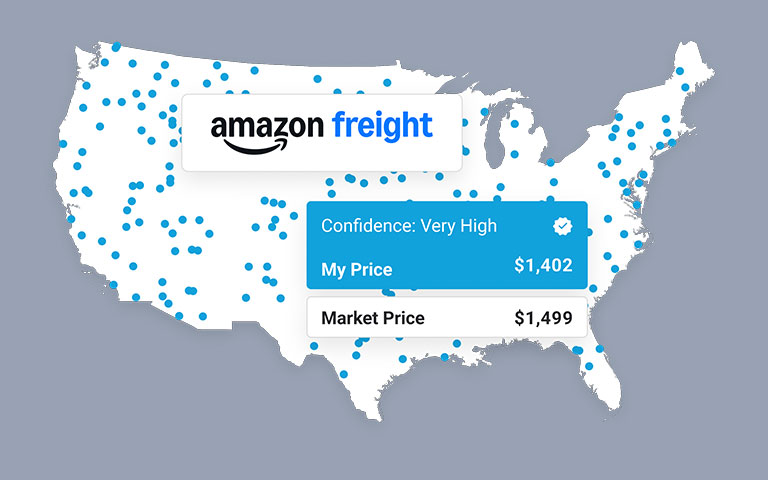Carbon-Negative RNG & the Future of Supply Chains

In the face of mounting concerns about climate change, businesses worldwide are recognizing the urgent need to transition towards more sustainable practices. One key area of focus is the reduction of greenhouse gas emissions — and the need to combat this issue is made all the more evident from recent news reports that highlight the urgency of addressing these issues:
- Greenhouse Gas Emissions: According to a report by the Global Carbon Project, global greenhouse gas emissions reached a record high in 2021, even after a brief decline during the COVID-19 pandemic. The report warns that these emissions need to be drastically reduced to avoid catastrophic climate consequences.
- Air Pollution in Urban Areas: Many cities around the world continue to grapple with severe air pollution, posing health risks to their residents. For instance, in January of this year, Beijing issued its first-ever red alert for air pollution, as smog levels reached hazardous levels, leading to school closures and restrictions on outdoor activities.
- Wildfires and Air Quality: The increasing frequency and intensity of wildfires have contributed to poor air quality in several regions. Even looking past the rising trend in poor air quality experienced during the California wildfire season, other areas are now also being hit harder than ever. The US experienced its worst toxic air pollution from wildfire smoke in its recent recorded history on June 7th this year, with people in New York exposed to levels of pollution more than five times above the national air quality standard.
Issues like these have led to the emergence of innovative solutions like carbon-negative Renewable Natural Gas (RNG). Below we’ll delve into the efforts being made by businesses to address the need for greener supply chains through funded programs, and how Shipwell TMS can play a crucial role in helping shippers build sustainable supply chains.
Understanding RNG: The Power of Cows and Organic Waste
It sounds a bit counterintuitive considering all the press around how 'cow emissions' are slowly killing the planet, but have you ever considered investing in a herd of cattle in order to reduce the carbon footprint of your logistics operations? Luckily you don't need to buy the cows yourself, but it's precisely those cow emissions that make RNG possible. Believe it or not, the manure produced by a single cow over the span of a year can keep a truck running for more than 1180 miles (1,900km). This presents a low-carbon (and lower-cost) alternative to diesel fuel that helps to reduce the carbon footprint of heavy-duty vehicles — and it’s just one of the ways that RNG is made.
Also known as biomethane, RNG is a fuel made up predominantly of methane that is derived from organic waste through a process called anaerobic digestion. Along with manure, this waste can also come from other sources such as landfill sites or food waste, and has the same qualities as natural gas. This means it can be used in existing gas transmission infrastructure, providing the benefits of natural gas with much lower carbon intensity.
But what really sets RNG apart is its carbon-negative nature, meaning it actually removes more carbon dioxide from the atmosphere than it emits when used as a fuel.
The Push for Greener Supply Chains
Businesses across various industries are realizing the importance of reducing their carbon footprint and embracing sustainability throughout their operations. As a result, many companies are actively seeking ways to incorporate RNG into their supply chains. But that’s not the only reason many look to this option — RNG trucks also save them money. While the trucks themselves do cost more than a traditional model, the maintenance required to keep them on the road is greatly reduced, and the price of RNG is lower (and less volatile) than diesel, making the higher truck purchase cost quickly offset by fuel savings and lower maintenance and upkeep compared to a diesel truck.
To take advantage of these savings and address the need for greener supply chains, several businesses have already started incorporating RNG into their operations. Some notable examples include:
- Amazon: As part of its commitment to sustainability, Amazon introduced RNG-powered trucks into its delivery fleet back in 2021. By using RNG as a fuel source, Amazon aims to reduce the carbon emissions associated with its transportation operations, making significant strides towards its goal of achieving net-zero carbon emissions by 2040.
- Walmart: The multinational retail corporation has been investing in RNG to power its transportation fleet. By incorporating RNG into its supply chain, Walmart aims to reduce its carbon footprint and support the development of a more sustainable transportation sector. This commitment to using RNG demonstrates Walmart's dedication to environmental stewardship.
- Nestlé: Nestlé, a leading food and beverage company, has been actively exploring the use of RNG in its transportation operations. By leveraging RNG as a fuel source for its trucks, Nestlé aims to reduce greenhouse gas emissions and contribute to the transition towards a more sustainable supply chain in the food industry.
- McDonald's: McDonald's Canada has made significant strides in incorporating RNG into its supply chain. The company has implemented RNG-powered trucks for its delivery fleet, aiming to reduce the carbon footprint associated with its transportation operations. By utilizing RNG as a fuel source, McDonald's Canada demonstrates its commitment to sustainable practices and reducing greenhouse gas emissions in the fast-food industry. This initiative aligns with McDonald's broader global sustainability goals, showcasing the potential for RNG to drive positive change in the food service sector.
These examples highlight how businesses across different sectors are embracing RNG as a key component of their sustainability strategies. By adopting RNG in their operations, these companies are not only reducing their carbon emissions but also reducing their costs while driving the demand for renewable energy sources and encouraging the growth of the industry as a whole.
Funded Programs and Business Initiatives
To accelerate the adoption of RNG in supply chains and support the transition towards greener energy sources, various funded programs and initiatives have emerged. These programs provide financial incentives and support to businesses looking to incorporate RNG into their operations, thereby facilitating the growth of a sustainable RNG industry.
One notable example is the Low Carbon Fuel Standard (LCFS) program in California, which offers credits to companies that use RNG as a transportation fuel. These credits can be traded or sold, providing businesses with a valuable economic incentive to invest in RNG infrastructure and technology. Additionally, the LCFS program stimulates the development of RNG production facilities and encourages the expansion of RNG distribution networks, making it more accessible and viable for businesses seeking to build a sustainable supply chain.
Other initiatives, both at the regional and national levels, provide grants, subsidies, and partnerships to support RNG projects. These programs aim to spur innovation in RNG production technologies, create more robust and flexible supply chains, and help businesses overcome the initial investment costs associated with adopting RNG. By fostering collaboration between industry stakeholders and providing financial assistance, these initiatives contribute to the growth of RNG adoption. The introduction of these grants, subsidies, and partnerships, aims to encourage the development of RNG production facilities, infrastructure, and technology to make it more accessible and affordable for businesses, ultimately leading to reduced greenhouse gas emissions and a more sustainable supply chain ecosystem.
Shipwell TMS: Building a Sustainable Supply Chain
Shipwell TMS stands at the forefront of enabling shippers to build sustainable supply chains by optimizing transportation operations, reducing waste, and making greener choices — and that includes introducing RNG into your logistics operations.
By leveraging performance analytics provided by Shipwell's TMS platform, businesses gain valuable insights into their transportation operations. With end-to-end visibility that’s capable of collecting and analyzing over 100 million rows of data points every day, shippers can track key metrics related to fuel consumption, carbon emissions, and efficiency throughout the supply chain. These analytics enable shippers to identify areas of inefficiency, bottlenecks, and opportunities for improvement — including areas where RNG can be effectively utilized — ensuring that every step in the supply chain contributes to reducing environmental impact.
Moreover, Shipwell's platform facilitates collaboration among stakeholders, enabling the seamless integration of RNG and other sustainability measures into various operations and ensuring that all parties are committed to driving improvements. By tracking key sustainability metrics and benchmarking against industry standards, businesses can identify areas for further improvement and make data-driven adjustments to their logistics processes. And the streamlined communication and data sharing provided by bringing everyone involved together on Shipwell’s centralized transportation management system provides a powerful advantage in the creation of a unified network that prioritizes sustainability and embraces the use of renewable energy sources. This collaboration is especially vital in sustainability measures like this because the successful adoption of RNG requires the active participation and alignment of all stakeholders involved in the supply chain.
Even looking beyond RNG integration, Shipwell provides a wide range of tools and features aimed at helping businesses to curb emissions and reduce the carbon footprint of their logistics operations. Features like Load Optimization leverages a proprietary algorithm to assess each individual order’s details, including size, weight, locations, pickup, and delivery times. In a matter of seconds, the orders are consolidated into the most cost-efficient routes and modes — effectively reducing both the miles traveled and the number of trucks needed for each shipment. In one example, a beta customer was able to reduce the number of miles driven for a single batch of shipments by over 2,700 miles, saving over 10,000 pounds of carbon emissions.
Together with Shipwell, businesses can lead the way in embracing emerging technologies like RNG to build a more sustainable supply chain, reduce waste, and make greener choices, shaping a sustainable supply chain that aligns with environmental goals and contributes to a healthier planet for generations to come.
To learn how Shipwell can help your business bring its supply chain into the future, speak with a platform expert today.


.svg)








